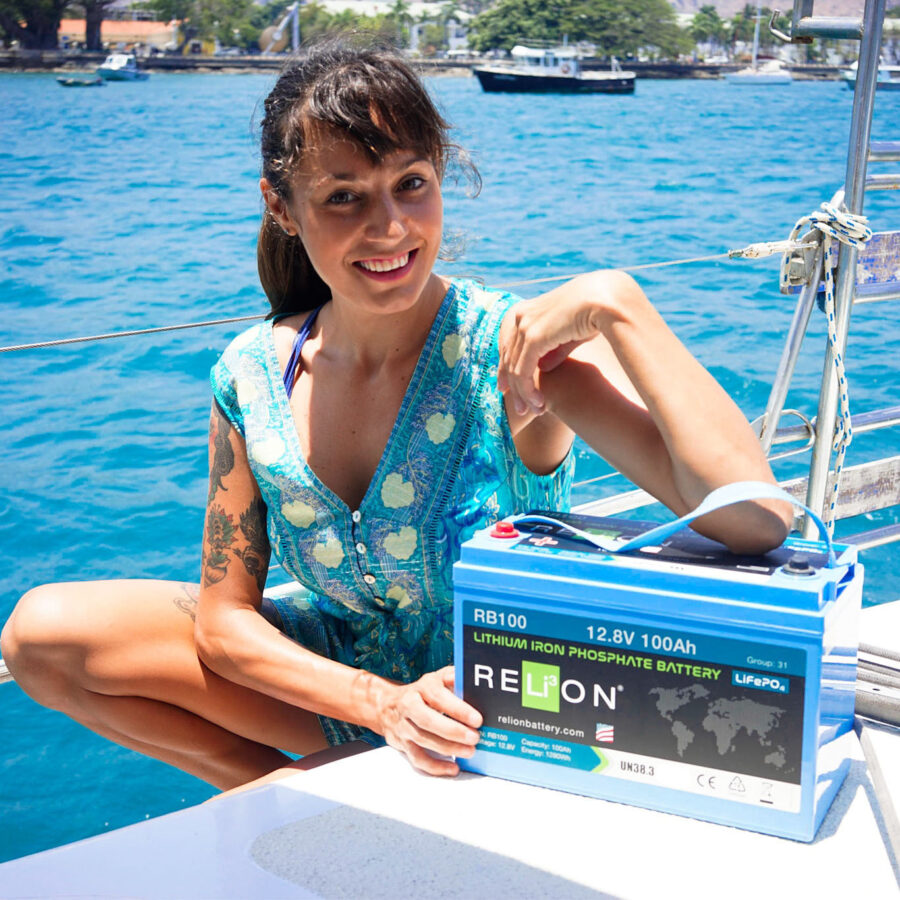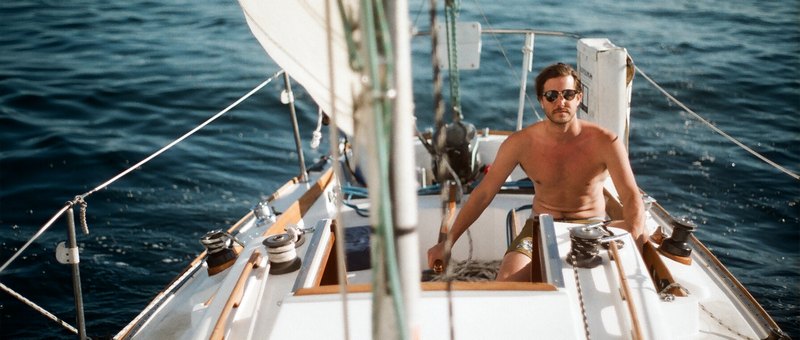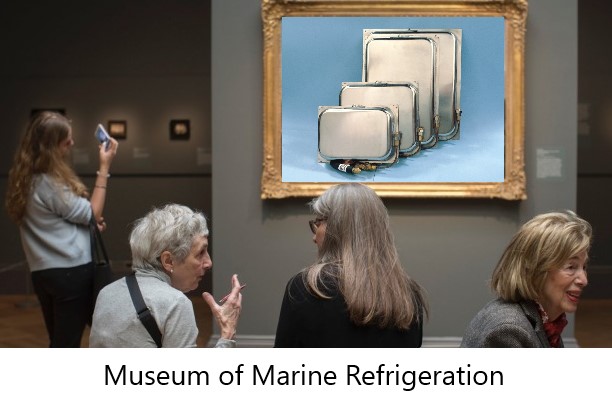
Did you know that if you store wine at higher temperatures than 65°F, you will actually be accelerating the aging process? Conversely, storing wines at colder than 45°F means they will not fully develop, robbing the wine (and yourself) of its full potential. Even that inexpensive bottle of Chardonnay you bought on sale last week can be adversely affected by storing it under your boat's salon settee until you've made room in the ice box, which in itself is normally at 40°F, so not a good place to put your wine anyway.
The temperature at which you store, and serve, your wine will have an impact on its flavor and your enjoyment. Especially if you plan to store your wine for at least 6 months, you know, for that cruise you've been planning to take before life gets in the way. On my boat, wine doesn't last long in storage, but that doesn't mean I want the taste to be compromised because I didn't handle it correctly. Something that could be so easily fixed.


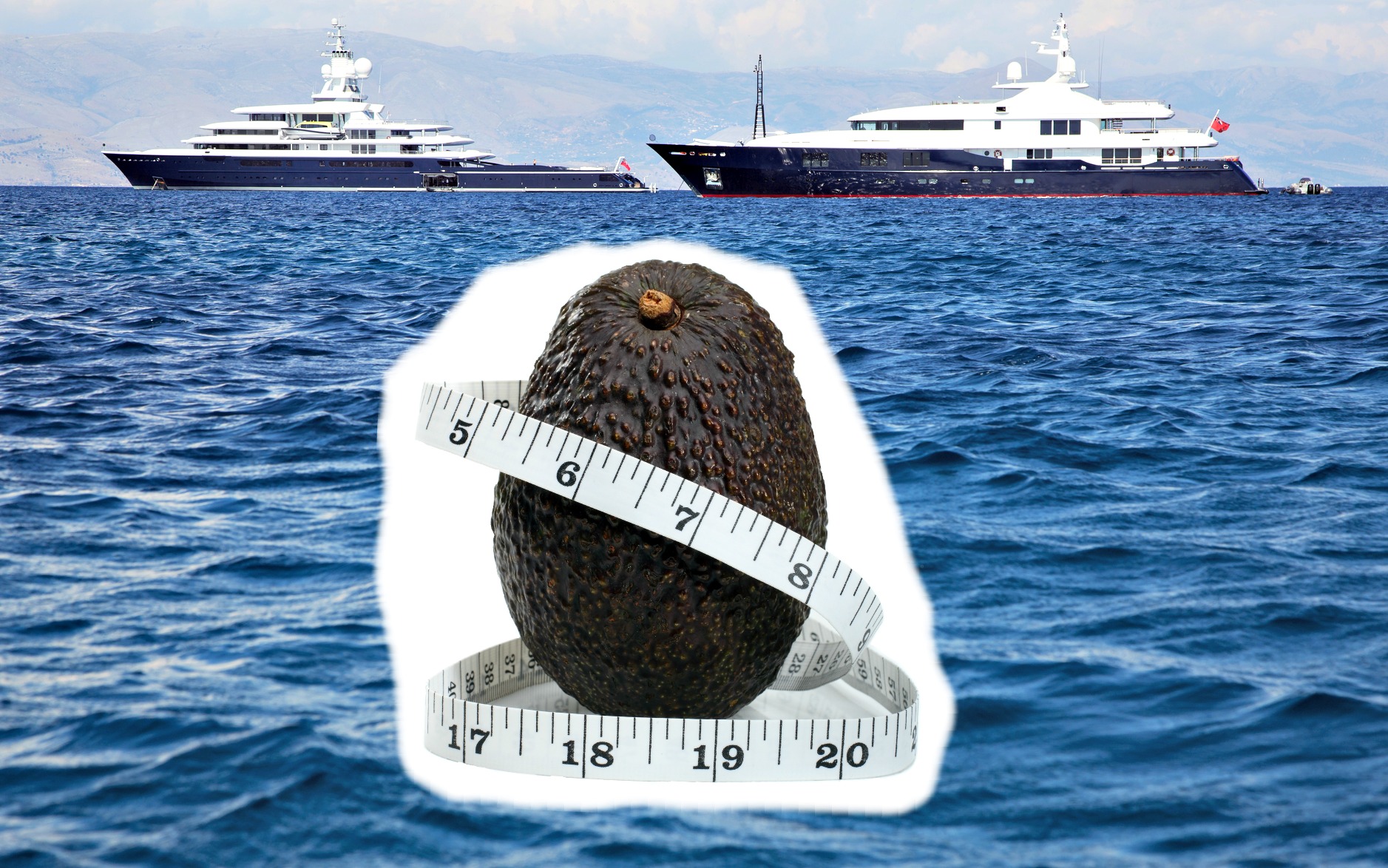
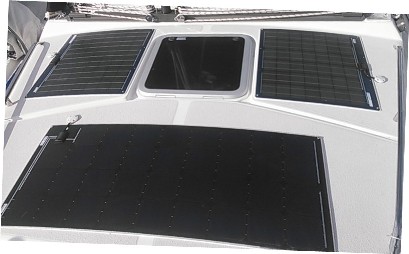


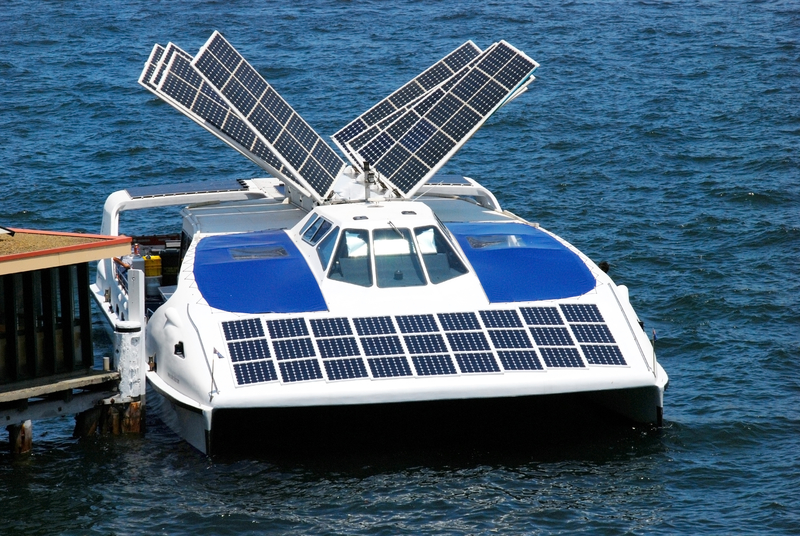
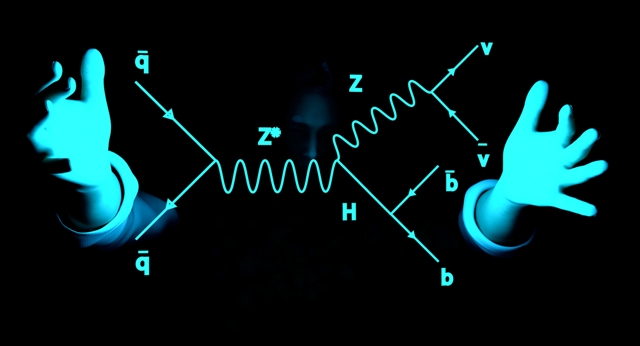 In the wake of the recent celebrations of science and scientists, I could not let the occasion go without a mention of the late Richard Feynman. For those of you not familiar with the name, Feynman, as well as being a brilliant scientist, was also a fascinating human being and a bit of a maverick who delighted in upending normal thinking and throwing the occasional curve-ball.
In the wake of the recent celebrations of science and scientists, I could not let the occasion go without a mention of the late Richard Feynman. For those of you not familiar with the name, Feynman, as well as being a brilliant scientist, was also a fascinating human being and a bit of a maverick who delighted in upending normal thinking and throwing the occasional curve-ball.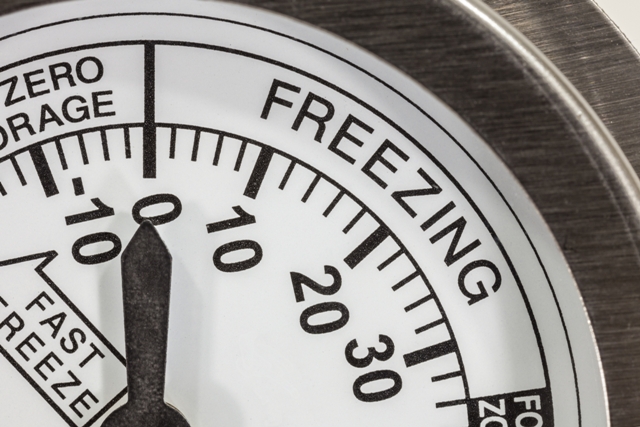 Are you, or is anyone you know, a Temperature Control Freak? You know the type; constantly fiddling with air conditioning and refrigerator controls and reporting on them to anyone within earshot. Well, I have such a friend.
Are you, or is anyone you know, a Temperature Control Freak? You know the type; constantly fiddling with air conditioning and refrigerator controls and reporting on them to anyone within earshot. Well, I have such a friend. I once read in a sailing magazine something like the following: “It’s boat show time, so let’s take a look at some of the products they are trying to foist on us poor unsuspecting boaters”. As a marine vendor I was incensed to read that, and vowed never to advertise in that publication. I never did, and eventually it folded. Go figure ....
I once read in a sailing magazine something like the following: “It’s boat show time, so let’s take a look at some of the products they are trying to foist on us poor unsuspecting boaters”. As a marine vendor I was incensed to read that, and vowed never to advertise in that publication. I never did, and eventually it folded. Go figure ....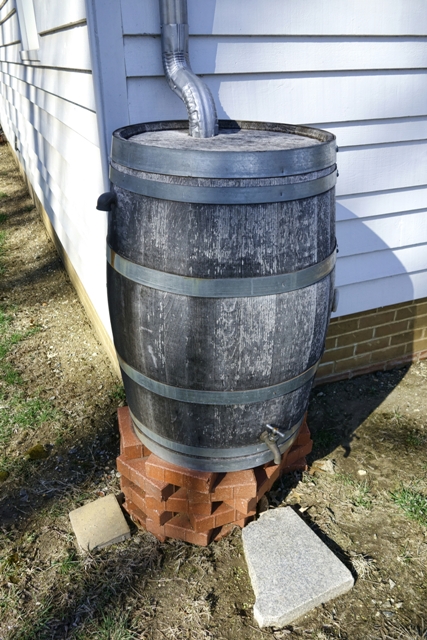 There seems to be many misconceptions regarding solar panels, particularly concerning marine installations on vessels. I’m thinking that maybe it’s because we all see solar panels on houses and assume that what applies to roof-top installations also applies to boats. Wrong!
There seems to be many misconceptions regarding solar panels, particularly concerning marine installations on vessels. I’m thinking that maybe it’s because we all see solar panels on houses and assume that what applies to roof-top installations also applies to boats. Wrong!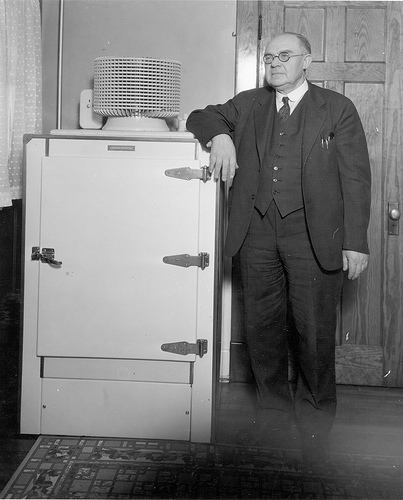 Once upon a time, a long time ago, there was only one brand of refrigerator that would work on 12v DC boat power. There must have been many thousands of them out there back in the day, predominately on powerboats, and a lot still exist to this day.
Once upon a time, a long time ago, there was only one brand of refrigerator that would work on 12v DC boat power. There must have been many thousands of them out there back in the day, predominately on powerboats, and a lot still exist to this day. There has long been a debate about air cooling versus water cooling for marine refrigeration systems. Water cooling has traditionally been generally accepted to be between 25% and 35% more efficient in warm/hot ambient conditions, but some of that efficiency gain has to be offset by the energy required to run a water pump.
There has long been a debate about air cooling versus water cooling for marine refrigeration systems. Water cooling has traditionally been generally accepted to be between 25% and 35% more efficient in warm/hot ambient conditions, but some of that efficiency gain has to be offset by the energy required to run a water pump. 
 Walking through the gaudy and gay Miami Bayside entertainment area during the Miami Strictly Sail show last week, whilst dodging obstacles such as parrot-wielding hawkers and perfume swatch pushers, I spotted a sign promoting a bar/restaurant called “Mangoes”.
Walking through the gaudy and gay Miami Bayside entertainment area during the Miami Strictly Sail show last week, whilst dodging obstacles such as parrot-wielding hawkers and perfume swatch pushers, I spotted a sign promoting a bar/restaurant called “Mangoes”. 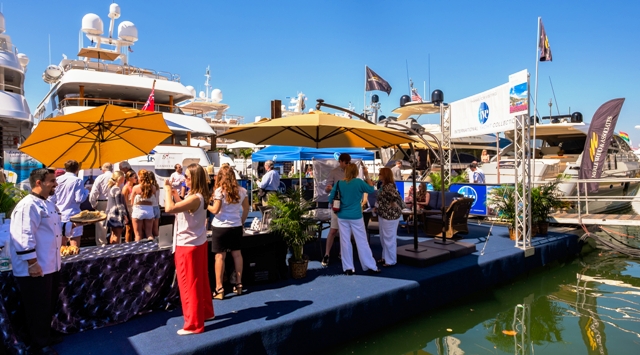
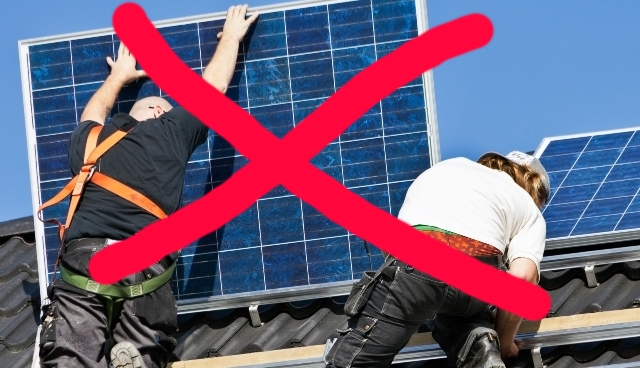
 Inner Secrets of the
Inner Secrets of the 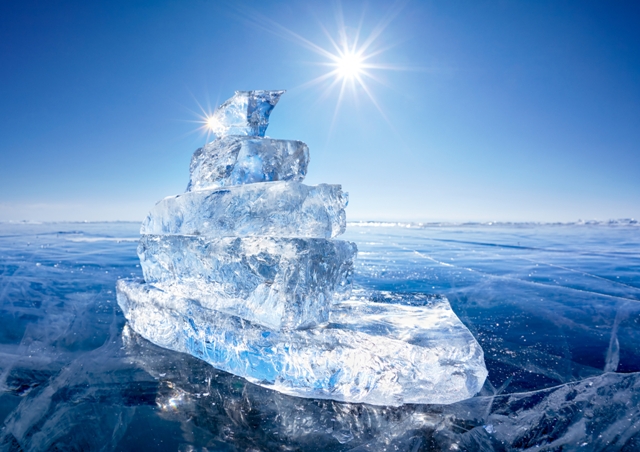
 Want to know the quickest way to get everyone warmed up at a Christmas party? Take your clothes off!
Want to know the quickest way to get everyone warmed up at a Christmas party? Take your clothes off!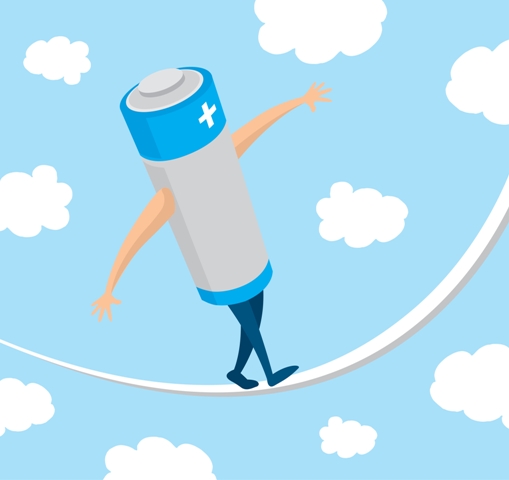 Now that we have the option to install true non-sulfating Partial State of Charge (PSOC) AGM batteries like the Firefly and the Blue Plus range from Meridian/Northstar, we are faced with a new dilemma. These batteries could be at risk of failure due to voltage imbalances when connected as multiple units in a series configuration.
Now that we have the option to install true non-sulfating Partial State of Charge (PSOC) AGM batteries like the Firefly and the Blue Plus range from Meridian/Northstar, we are faced with a new dilemma. These batteries could be at risk of failure due to voltage imbalances when connected as multiple units in a series configuration.
